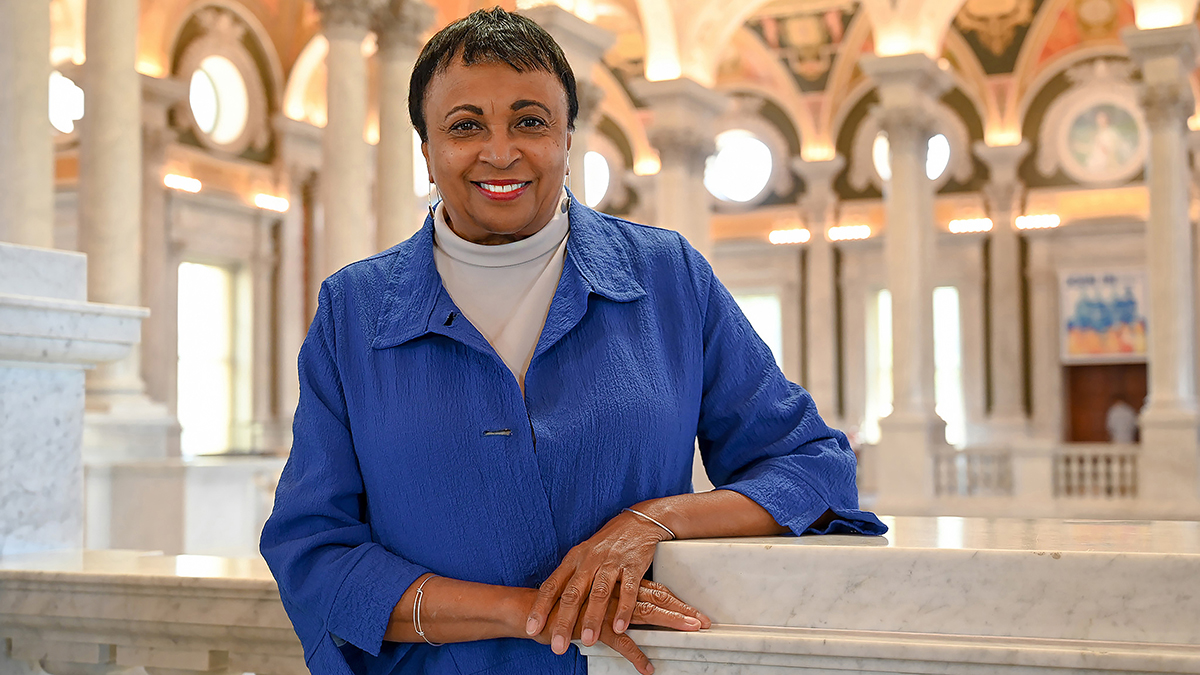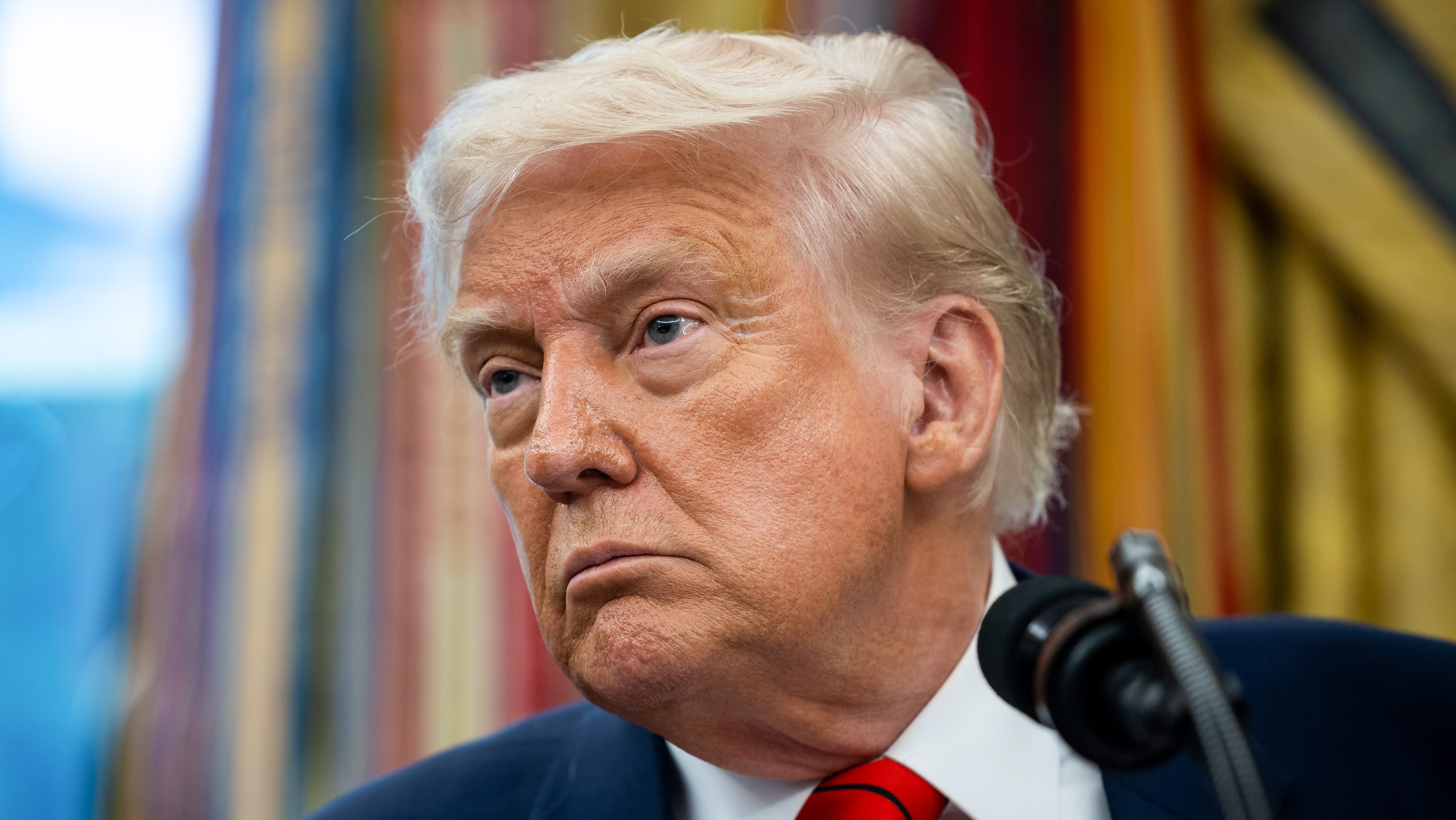Trump Fires Librarian of Congress: Shocking Power Play?
President Trump Fires Librarian of Congress: A Shocking Move?
A Sudden Exit: What Happened to Carla Hayden?
Well, folks, things just got a whole lot more interesting in Washington! President Donald Trump has reportedly fired Librarian of Congress Carla Hayden, sending shockwaves through the literary and political worlds. Can you believe it? This abrupt dismissal, delivered via email, has left many wondering what exactly went down and what it means for the future of the Library of Congress.
The Email Heard 'Round the Library
Imagine getting an email that essentially says, "You're fired!" That's reportedly how Hayden was informed of her termination. The email, obtained by the Associated Press, was brief and to the point, stating that her position was terminated effective immediately. Talk about a mic drop, right?
Who is Carla Hayden? A Trailblazer's Legacy
Before we dive deeper into the controversy, let's remember who Carla Hayden is. Confirmed by the Senate in 2016, she was not only the first woman but also the first African American to hold the prestigious title of Librarian of Congress. This was a historic moment, breaking barriers and inspiring countless individuals. Her appointment represented a significant step forward for diversity and inclusion in a traditionally homogenous field.
Hayden's Accomplishments at the Library of Congress
During her tenure, Hayden spearheaded numerous initiatives aimed at modernizing the Library of Congress and making its vast resources more accessible to the public. These included:
- Expanding digital access: She oversaw the digitization of countless documents, photographs, and recordings, bringing the library's collections to a global audience.
- Promoting literacy: Hayden was a strong advocate for literacy programs, working to ensure that everyone has access to the resources they need to learn and grow.
- Engaging new audiences: She implemented innovative programs to attract younger audiences and make the library more relevant to contemporary society.
Her efforts have undoubtedly left a lasting impact on the institution.
Why Now? Exploring the Potential Motivations
So, why the sudden dismissal? With Hayden's 10-year term set to expire next year, the timing of this decision is certainly raising eyebrows. Let's explore some possible reasons:
Political Purge? A Deep Dive
The initial reports suggest this firing is part of a broader effort by the Trump administration to remove individuals perceived as disloyal or opposed to the president's agenda. Is this just another case of "you're either with us or against us"? If so, it raises serious questions about political interference in non-partisan institutions.
Conservative Backlash: The Pressure Cooker
Hayden had faced criticism from a conservative advocacy group that had vowed to "root out" those perceived as having a liberal bias within the Library of Congress. Could this pressure have influenced the White House's decision? It's certainly a possibility worth considering.
A Clash of Visions: Differing Priorities?
Perhaps there was a fundamental disagreement between the White House and Hayden regarding the direction of the Library of Congress. Did they have different visions for the institution's role and priorities? Sometimes, even with the best intentions, differing ideologies can lead to irreconcilable differences.
The Reaction: Shock, Disappointment, and Outrage
The news of Hayden's firing has been met with a mixture of shock, disappointment, and outrage from librarians, academics, and civil rights advocates across the country. Many are expressing concern about the potential politicization of the Library of Congress and the impact on its independence.
Social Media Explodes: The Digital Town Square
As expected, social media has been buzzing with reactions to the news. #CarlaHayden, #LibraryOfCongress, and #Trump have been trending on Twitter, with users expressing their opinions and sharing their thoughts. It's a digital town square where everyone has a voice.
Librarians Speak Out: Protecting Intellectual Freedom
Librarians, in particular, have been vocal in their defense of Hayden and the importance of intellectual freedom. They argue that the Library of Congress should be a non-partisan institution dedicated to preserving knowledge and promoting access to information for all.
The Future of the Library of Congress: What's Next?
So, what does this all mean for the future of the Library of Congress? The immediate question is: who will be nominated to replace Hayden? And what will their priorities be? The selection of a new Librarian of Congress will undoubtedly have a significant impact on the institution's direction for years to come.
The Nomination Process: A Political Battlefield?
The nomination process is likely to be highly politicized, with both Democrats and Republicans vying to influence the selection. Will the Senate confirm a nominee who aligns with the Trump administration's agenda, or will they prioritize someone with a commitment to intellectual freedom and non-partisanship? The answer remains to be seen.
The Importance of a Non-Partisan Institution
It's crucial to remember that the Library of Congress is a national treasure, a repository of knowledge and culture that belongs to all Americans. It should be protected from political interference and allowed to operate independently. Its mission is to serve the public, not to advance any particular political agenda.
The Impact on the Literary Community: A Chilling Effect?
Could this firing have a chilling effect on the literary community? Will writers, scholars, and researchers be hesitant to express their views if they fear repercussions from the government? It's a legitimate concern that needs to be addressed.
Protecting Intellectual Freedom: A Call to Action
Now, more than ever, it's important to defend intellectual freedom and ensure that libraries and other cultural institutions remain independent and accessible to all. We must stand up for the principles of free speech and open inquiry. This is a fight we cannot afford to lose.
Conclusion: Reflecting on the Implications
The firing of Carla Hayden as Librarian of Congress is a significant event with far-reaching implications. It raises questions about political interference, the importance of non-partisan institutions, and the future of intellectual freedom in America. Let's hope this event serves as a wake-up call, reminding us of the need to protect our libraries and defend the principles of free speech and open inquiry. It is our responsibility to ensure that the Library of Congress remains a beacon of knowledge and culture for generations to come.
Frequently Asked Questions
- Why was Carla Hayden fired from her position as Librarian of Congress?
The White House cited no specific reason for Hayden's termination, though speculation suggests it might be linked to a broader effort to remove individuals perceived as disloyal or a result of pressure from conservative groups. - What impact will this have on the Library of Congress?
The firing could lead to significant changes in the Library's direction, depending on who is appointed as Hayden's replacement. There's concern it could become more politically influenced. - Was it legal for President Trump to fire the Librarian of Congress?
The legal grounds for the firing are subject to debate and depend on the specific terms of the appointment and relevant laws. The Librarian serves at the pleasure of the President, though abrupt termination raises concerns. - Who will replace Carla Hayden as Librarian of Congress?
The President will nominate a candidate, who must then be confirmed by the Senate. The selection process is likely to be highly politicized. - How can I support the Library of Congress during this transition?
You can support the Library by contacting your elected officials to express your concern about the firing and the importance of a non-partisan Library of Congress. You can also donate to support the Library's programs and initiatives and use the Library's resources.

